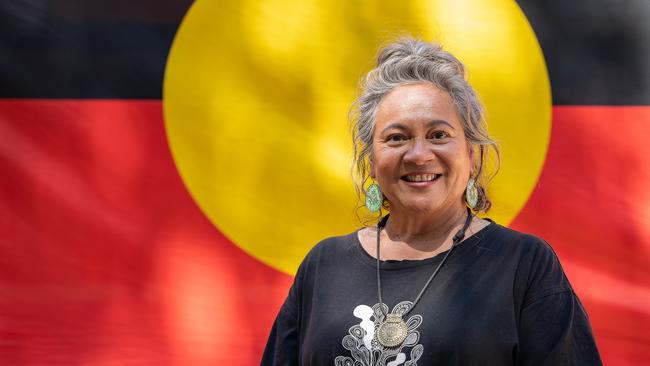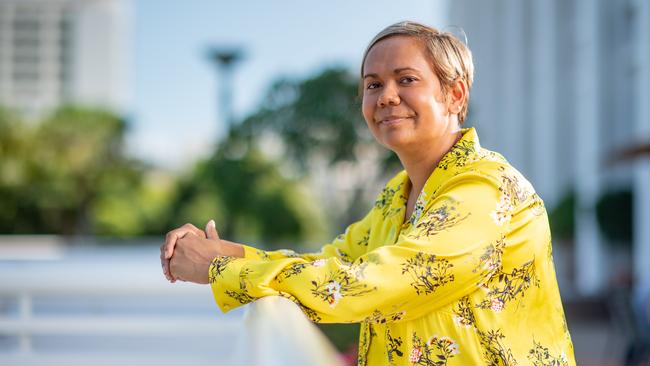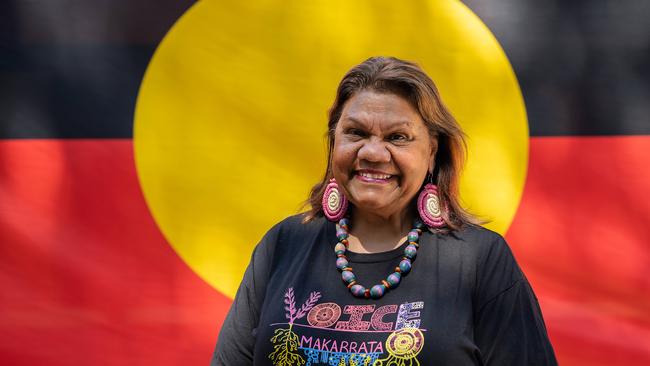Christine Ross and Tanyah Nasir discuss Aboriginal education outcomes
Two of the Territory’s leading Aboriginal educators have big plans to take lessons from the 90s and drive better education outcomes for Aboriginal students. Read the famous alumni that took part in the programs.
The key to better education outcomes for Aboriginal students could lie in reinvigorating programs from 30 years ago.
Arrernte and Kaytetye woman and Aboriginal educator Christine Ross said the 90s were a “time of achievement” for the Territory’s Department of Education.
Between the Aboriginal Teachers Association, Aboriginal education initiatives and several big conferences, Ms Ross said there was “a lot of support” for First Nations students at the time.
But she said many of the programs that successfully engaged with Aboriginal students in the past were no longer in play.
“Once we left the building, it stopped,” Ms Ross said.

Garrawa, Djugun-Yawuru woman Tanyah Nasir was a founding member of the Aboriginal Teachers Association alongside Ms Ross.
Ms Nasir said revisiting initiatives such as the Aboriginal and Islander Tertiary Aspirations Program would be a big step towards engaging Aboriginal students with education.
“It was a program that was about academic performance and developing their confidence and self-esteem, their cultural identity, their personal identity, their academic aspirations,” she said.
Ms Nasir said the program included challenges similar to Tournament of Minds, where students competed against one another across four categories – quizzes, long-term problem solving, oral presentations, and theatre.
“It was an opportunity for Aboriginal students to succeed in academic performance rather than sport, so we were acknowledging these other skills and other gifts that young people had.
“It was a way of developing the communities for Aboriginal students, they did phenomenal.”
Ms Nasir said AITAP’s participants were “doing amazing things” as adults now – including Arnhem MLA Selena Uibo and actress Miranda Tapsell.
“They remember it fondly, but they also remember it as one of the triggers and catalysts for where they are today,” she said.
Ms Nasir said similar programs existed today but they’re “not the same”.
She said Aboriginal leadership across the board was key and created a shared responsibility for the educational outcomes of Aboriginal students.

Aboriginal Affairs Minister Selena Uibo said she was part of AITAP from year 8 to 12 and loved her experience in the program.
“I think my involvement in AITAP and the positive experiences I had with fellow students, teachers, support staff and program co-ordinators opened up my eyes to a range of different activities and opportunities both within and outside of school,” she said.
“For example Youth Parliament, Toast Masters (public speaking workshops), mentoring, tutoring and volunteer community service work.”
Ms Uibo said the program offered a “safe space” to learn and grow across a range of areas.

Ms Ross called on NT schools to bring more Aboriginal teachers into classrooms.
“All of our ex-students will always talk about the difference we made when they walked into our classrooms and they saw an Aboriginal teacher for the first time in Darwin,” she said.
“We need more of our Aboriginal teachers in downtown Darwin, not just in the remote communities.
“It’s important for both.”
Ms Ross and Ms Nasir hope to turn the tools from decades past into drivers of positive change for future Aboriginal students at an upcoming forum.
Ms Nasir said educators from 30 years ago would be speaking about their programs from 30 years ago during panels at Charles Darwin University on Thursday.
“There’s going to be a lot of sharing about what happened previously, historical information, but I think most importantly in that storytelling is sharing the knowledge, the strategies and initiatives that worked,” she said.
A paper is set to be written and distributed to key educational leaders in the Territory following the forum, with recommendations for steps forward.
More Coverage
Originally published as Christine Ross and Tanyah Nasir discuss Aboriginal education outcomes




